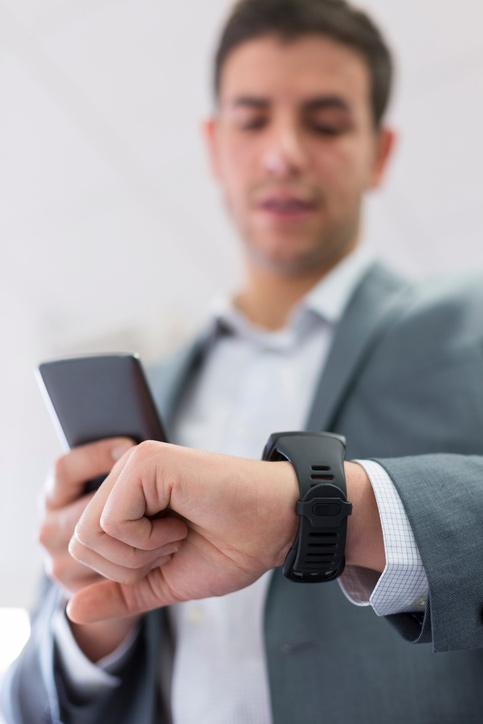
The ASCO Educational Book is a collection of articles written by ASCO Annual Meeting speakers and oncology experts. Published annually, each volume highlights the most compelling research and developments across the multidisciplinary fields of oncology such as surgery, radiation, symptom management, health services research, international perspectives, and immunology, among other topics.
Michael J. Fisch, MD, MPH, is the medical director of medical oncology for AIM Specialty Health. Melissa K. Accordino, MD, is an assistant professor of medicine within the Division of Hematology/Oncology at the Herbert Irving Comprehensive Cancer Center at the Columbia University Medical Center. Arlene E. Chung, MD, MHA, MMCi, is an assistant professor of medicine and pediatrics at the UNC Lineberger Comprehensive Cancer Center at the University of North Carolina at Chapel Hill.
More and more, new communication technology is being used to provide cancer care.  Web-based tools, wearable technology, and smartphones let lots of people engage with each other and share information. Medical institutions and individual health care professionals are developing ways to use this technology to improve the quality of medical care.
Web-based tools, wearable technology, and smartphones let lots of people engage with each other and share information. Medical institutions and individual health care professionals are developing ways to use this technology to improve the quality of medical care.
Oncologists can use social media to interact with each other and to engage with the public on topics like science, medicine, and cancer care. Social media can also connect doctors with patients and allow them to connect with the public in a broader sense. For example, doctors can follow individual cancer survivors and their family members on social media to support a healthy exchange of ideas and perspectives about illness, science, and health care. It should be noted that doctors should never share or weigh in on patients’ private medical information on social media.
Electronic health records (EHRs) have become standard in cancer care. An EHR is an electronic system that can:
- Collect and store patient data
- Provide information
- Allow health care providers to enter treatment plans
- Support decision making
EHRs may provide additional features, such as electronic communication between the cancer care team and patients and caregivers, administrative support, and patient support. The data that come from EHRs may allow health systems to better evaluate the care they are providing. This knowledge could help improve the quality of cancer care and be used to support clinical and population-based research.
Wearable technologies offer even more avenues of patient support and engagement with medical care. The data collected by these devices may also help improve care and research.
In this podcast, Drs. Fisch, Accordino, and Chung describe where we are with the use of digital technology in cancer care and what the future may promise.
Major Discussion Points
- How do doctors use digital technology professionally [2:50]?
- How do doctors and patients use social media to engage with each another [3:57]?
- What is an EHR [6:03]?
- What are wearables and how might they improve cancer care [8:21]?
- What are the challenges associated with using this new technology in oncology [12:55]?
- What may the future hold for the use of new technology in cancer care [13:55]?
This is a prerecorded audio podcast. It can be listened to online or downloaded to your computer. A transcript of this podcast is also available. For more information, visit the Cancer.Net podcast page.
